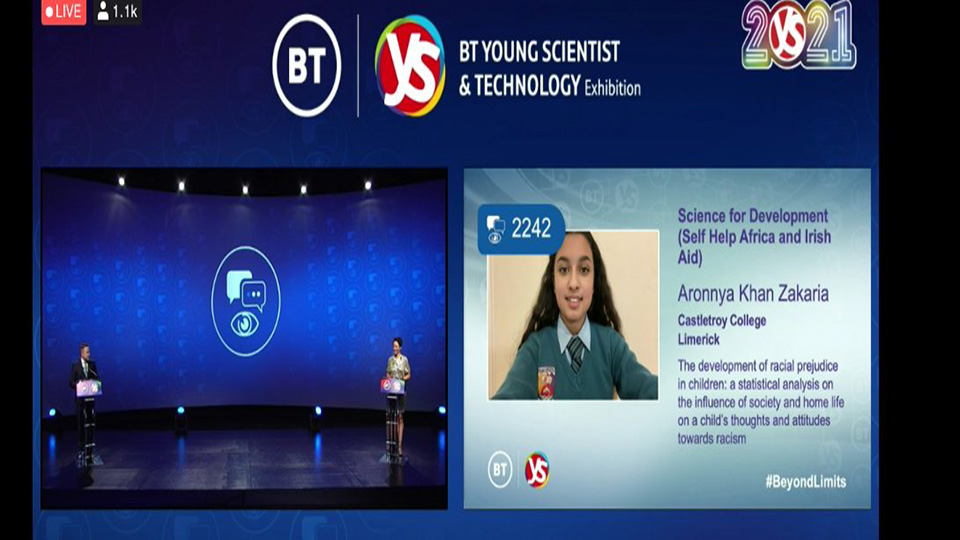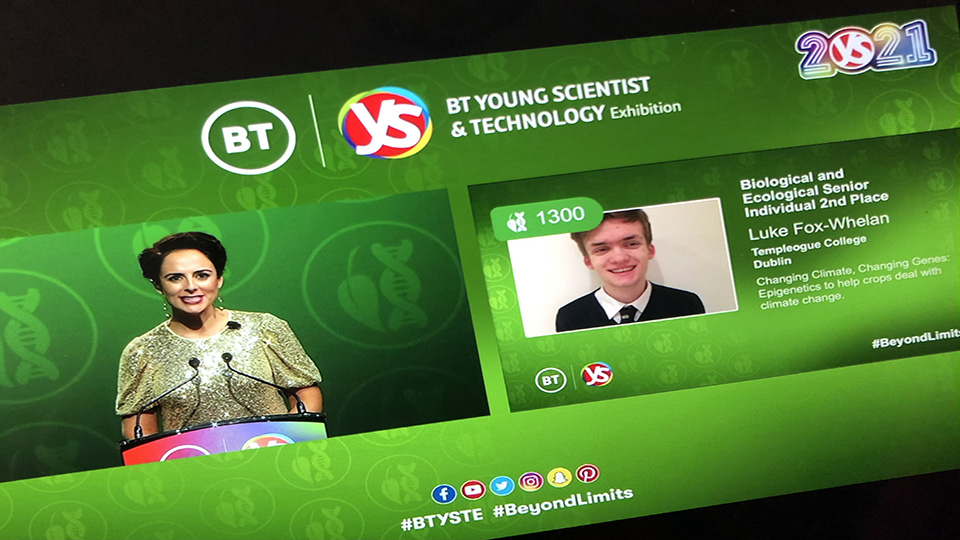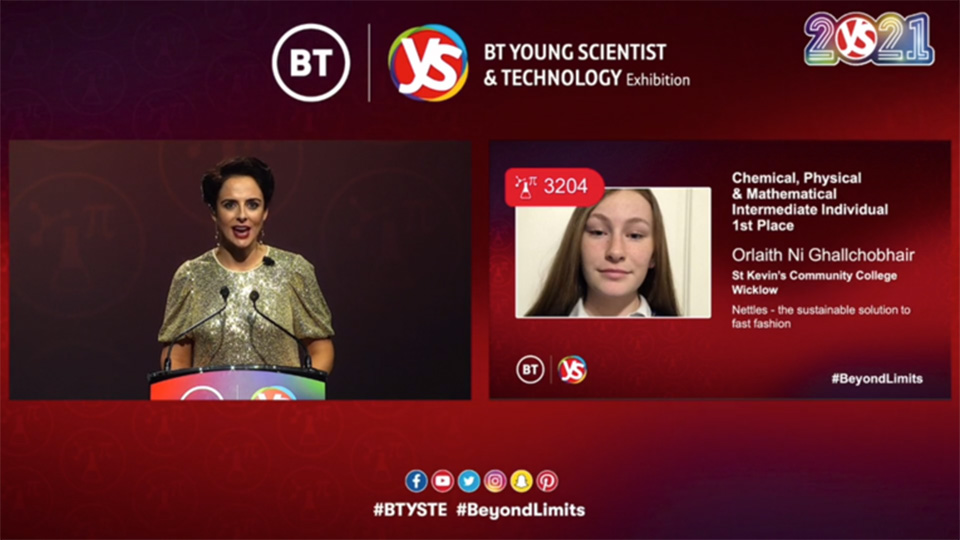BT Young Scientist and Technology Exhibition 2021 Winner
News
18 January 2021
Photo Credit: BTYSTE - Aronnya Khan Zakaria, winner of the Science for Development Award 2021
Congratulations to all participants in BT Young Scientist and Technology Exhibition 2021 and in particular to the winner of the Self Help Africa/ Irish Aid Science for Development Award
The Science for Development Award winner at the 2021 BT Young Scientist and Technology Exhibition is Aronnya Khan Zakaria from Castletroy College in Limerick. Aronnya's project is called 'The Development of Racial Prejudice in Children: a Statistical Analysis on the Influence of Society and Home Life on a Child's Thoughts and Attitudes towards Racism'. Arronya's project seeks to identify why some people learn to view the world through racist stereotypes. She decided to focus her research on young children, interviewing 5 -7 year olds in Ireland and in Bangladesh with their parents and researching potential influences on racism from each country.
Minister Colm Brophy TD, Minister for Overseas Development and the Diaspora at the Department of Foreign Affairs, presented Aronnya with her award at an exciting online ceremony on 8 January. He later said, "I am delighted to congratulate Aronnya on her excellent project which deservedly won the Science for Development Award this year. Its focus on the development of racial prejudice in children is an important issue for society and I'm glad to see Aronnya's hard work recognised with this Award".
The award will enable Arronya and her teacher to travel to Africa as part of a Self Help Africa schools visit when it is completely safe to do so. She will have the opportunity to present her findings there and possibly further develop her project.
This is the sixteenth year that Irish Aid has funded the €6,000 travel bursary which is awarded to the winning project and which aims to encourage teachers and students to develop ideas, using appropriate scientific technology, that may prove useful at community level in the Global South. The aim is to give students a greater insight into the wider world, and their role as global citizens. The award is adjudicated entirely independently by the judges at the annual BT Young Scientist and Technology Exhibition. The judges look for evidence that the students have made the link to the global, setting out how many modern challenges are global challenges, which require global solutions.
This year, due to the Covid-19 pandemic, the entire BT Young Scientist and Technology Exhibition moved online which proved to be a great success. Selected from over 1,300 entries, the 550 finalists who show cased their projects on the virtual platform, represented 213 schools across 29 counties. The impact of the Covid-19 pandemic on the students was evident with a quarter of all qualified projects exploring topics relating to health and the impact of Covid-19. Many other projects analysed both national and global social issues such as direct provision, gender studies, race, domestic abuse, sexual assault, and socioeconomic challenges.

Below are a selection of some of the short listed projects, which displayed a global development theme, and a determination to find solutions to global problems. Luke Fox-Whelan from Templeogue College in Dublin was concerned with how we might mitigate the looming problem of food insecurity due to climate change which threatens us not only here in Ireland but in all agricultural nations around the world. In his project entitled 'Changing Climate, Changing Genes: Epigenetics to help Crops deal with Climate Change', Luke impressed the judges, coming second in the Biological and Ecological Senior Individual category.
Callum Gallagher, Oliver Greene and Amber Brytus from Youthreach Navan wanted to prove the usefulness of smartphones as a teaching and learning tool during lockdown. Their project, 'Smart learning for Smart People' looked in particular at their use for marginalised students and students in the developing world. The project impressed the judges, earning them second place in the Social and Behavioural Senior Group.
Darragh Halpin, Ryan Lynch and Andrew Leonard from St Joseph's Secondary School, Rush, County Dublin were also concerned with global food security. Their project, 'Seaweed: Breakfast of Champignons', investigated the environmental, nutritional and economic benefits of seaweed as a natural nutritional supplement. They established the dominant seaweeds washed up on the beaches locally in Rush and provided scientific evidence for their use as a nutrient source. The boys also assessed how seaweed use has great benefits not only in Ireland, but also in coastal countries in Africa.
Annie Duffy, Leah Hallissy and Ava Hallissy from Moate Community School in Westmeath considered how the problem of dealing with household waste could actually become a biofuel solution. Their project, 'The Future Is Bright: Turning Organic Waste Into Biofuel' explored producing a combustible pellet to replace traditional wood burning pellets using organic compost from household waste, also ensuring protection of the environment. The girls specifically referenced the disproportionate effect on developing countries of the rising cost and short supply of fossil fuels.

The overconsumption and waste associated with Fast Fashion consumes extraordinary volumes of fresh water and creates chemical and plastic pollution worldwide. Orlaith Ní Ghallchobhair from St Kevin's Community College in Wicklow decided to find a sustainable alternative to polyester in her project entitled 'Nettles - the Sustainable Solution to Fast Fashion'. Orlaith proved that nettles produce a strong and durable yarn and that nettle wool is a great insulator, knitting her own scarf as part of the experiment. All by-products of the process can be fed to animals which makes the process even more sustainable. Orlaith's project not only came first in Chemical, Physical & Mathematical Intermediate Individual but also won the Environmental Protection Agency Special Award.
|

